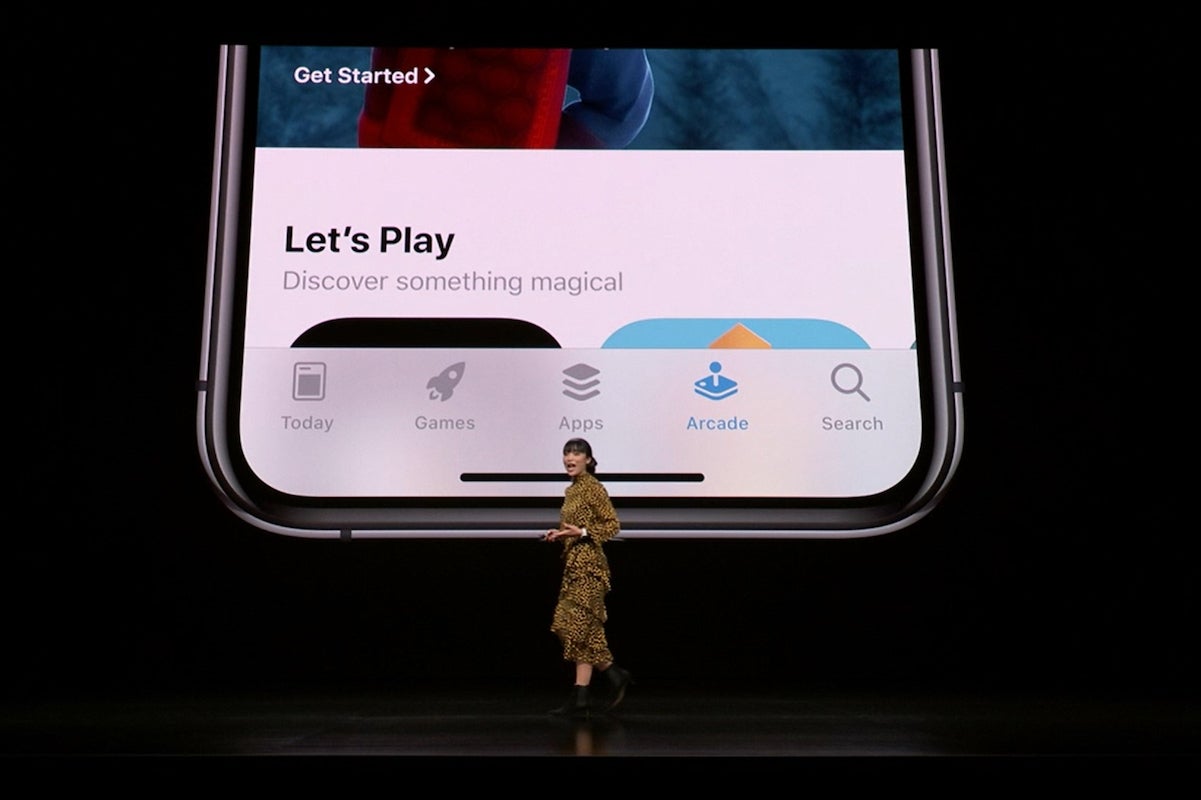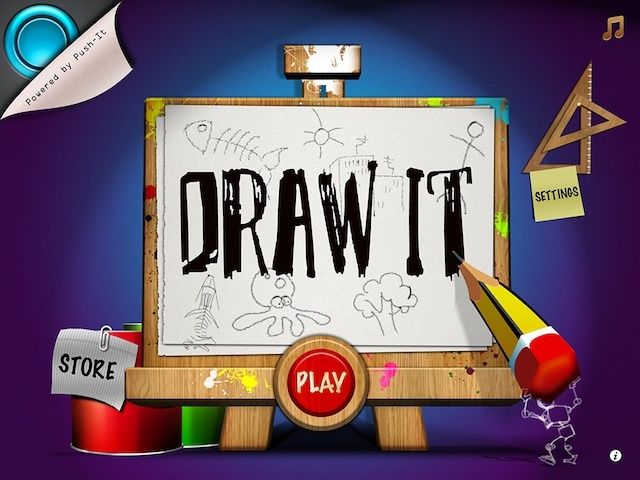Play Games Via Emac On Mac
The Mac has plenty of games, but it'll always get the short end of the stick compared to Windows. If you want to play the latest games on your Mac, you have no choice but to install Windows ... or do you?
Oct 29, 2019 The Mac has plenty of games, but it'll always get the short end of the stick compared to Windows. If you want to play the latest games on your Mac, you have no choice but to install Windows. There are a few ways you can play Windows games on your Mac.
- Feb 26, 2013 Play Games in Terminal in Mac: Old Good GNU emacs Games. Play Games in Terminal the old good GNU emacs games in Mac OS X using some commands. Many games comes by default in Lion or higher like Tetris. You can add more emacs games.
- Jul 05, 2017 Macs don’t come with Windows, but you can install Windows on your Mac via Boot Camp and reboot into Windows whenever you want to play these games. This allows you to run Windows games at the same speeds they’d run at on a Windows PC laptop with the same hardware.
There are a few ways you can play Windows games on your Mac without having to dedicate a partition to Boot Camp or giving away vast amounts of hard drive space to a virtual machine app like VMWare Fusion or Parallels Desktop. Here are a few other options for playing Windows games on your Mac without the hassle or expense of having to install Windows.
GeForce Now
PC gaming on Mac? Yes you can, thanks to Nvidia's GeForce Now. The service allows users to play PC games from Steam or Battle.net on macOS devices. Better still, the graphic power of these games resides on Nvidia's servers. The biggest drawback: the service remains in beta, and there's been no announcement when the first full release is coming or what a monthly subscription will cost.
For now, at least, the service is free to try and enjoy. All supported GeForce NOW titles work on Macs, and yes, there are plenty of them already available!
The Wine Project
The Mac isn't the only computer whose users have wanted to run software designed for Windows. More than 20 years ago, a project was started to enable Windows software to work on POSIX-compliant operating systems like Linux. It's called The Wine Project, and the effort continues to this day. OS X is POSIX-compliant, too (it's Unix underneath all of Apple's gleam, after all), so Wine will run on the Mac also.
Wine is a recursive acronym that stands for Wine Is Not an Emulator. It's been around the Unix world for a very long time, and because OS X is a Unix-based operating system, it works on the Mac too.
As the name suggests, Wine isn't an emulator. The easiest way to think about it is as a compatibility layer that translates Windows Application Programming Interface (API) calls into something that the Mac can understand. So when a game says 'draw a square on the screen,' the Mac does what it's told.
You can use straight-up Wine if you're technically minded. It isn't for the faint of heart, although there are instructions online, and some kind souls have set up tutorials, which you can find using Google. Wine doesn't work with all games, so your best bet is for you to start searching for which games you'd like to play and whether anyone has instructions to get it working on the Mac using Wine.
Note: At the time of this writing, The Wine Project does not support macOS 10.15 Catalina.
CrossOver Mac
CodeWeavers took some of the sting out of Wine by making a Wine-derived app called CrossOver Mac. CrossOver Mac is Wine with specialized Mac support. Like Wine, it's a Windows compatibility layer for the Mac that enables some games to run.
CodeWeavers has modified the source code to Wine, made some improvements to configuration to make it easier, and provided support for their product, so you shouldn't be out in the cold if you have trouble getting things to run.
My experience with CrossOver — like Wine — is somewhat hit or miss. Its list of actual supported games is pretty small. Many other unsupported games do, in fact work — the CrossOver community has many notes about what to do or how to get them to work, which are referenced by the installation program. Still, if you're more comfortable with an app that's supported by a company, CrossOver may be worth a try. What's more, a free trial is available for download, so you won't be on the hook to pay anything to give it a shot.
Boxer
If you're an old-school gamer and have a hankering to play DOS-based PC games on your Mac, you may have good luck with Boxer. Boxer is a straight-up emulator designed especially for the Mac, which makes it possible to run DOS games without having to do any configuring, installing extra software, or messing around in the Mac Terminal app.
With Boxer, you can drag and drop CD-ROMs (or disk images) from the DOS games you'd like to play. It also wraps them into self-contained 'game boxes' to make them easy to play in the future and gives you a clean interface to find the games you have installed.
Boxer is built using DOSBox, a DOS emulation project that gets a lot of use over at GOG.com, a commercial game download service that houses hundreds of older PC games that work with the Mac. So if you've ever downloaded a GOG.com game that works using DOSBox, you'll have a basic idea of what to expect.
Some final thoughts
In the end, programs like the ones listed above aren't the most reliable way to play Windows games on your Mac, but they do give you an option.
Of course, another option is to run Windows on your Mac, via BootCamp or a virtual machine, which takes a little know-how and a lot of memory space on your Mac's hard drive.
How do you play your Windows games on Mac?

Play Games Via Emac On Mac Download
Let us know in the comment below!
Updated October 2019: Updated with the best options.
Play Games Via Emac On Mac Computer
We may earn a commission for purchases using our links. Learn more.
Fishing timeC.J.'s next Fishing Tourney will be in July
There are four Fishing Tourneys each year in Animal Crossing: New Horizons. Here's when they are and what the rules are for participating.
| Dunnet | |
|---|---|
| Developer(s) | Ron Schnell |
| Genre(s) | Text adventure |
Dunnet is a surreal, cyberpunk[1]text adventure written by Ron Schnell, based on a game he wrote in 1982[2]. The name is derived from the first three letters of dungeon and the last three letters of Arpanet[citation needed]. It was first written in Maclisp for the DECSYSTEM-20, then ported to Emacs Lisp in 1992.[3] Since 1994 the game has shipped with GNU Emacs;[4] it also has been included with XEmacs.[5]
The game has been recommended to writers considering writing interactive fiction.[6]
Plot[edit]
The game starts out like most text adventures, with the player standing at the end of a dirt road, but it turns to the surreal when players realize that they are actually walking around inside a Unix system, and teleporting themselves around the Arpanet. There are many subtle jokes in this game, and there are multiple ways of ending the game. Throughout the game the player moves through different areas and rooms trying to collect treasure to earn points.

Legacy[edit]
Dunnet is playable on any operating system with the Emacs editor.[7] Emacs comes with most Unices, including macOS and distributions of Linux. Several articles targeted to Mac OS X owners have recommended it as an easter egg as a game that can be run in Terminal.app.[8][9] It can be run by running emacs -batch -l dunnet in a shell or the key sequence M-x dunnet within Emacs, the former being the preferred and official way to run it.[10] Dunnet was used as a benchmark in the effort to port Emacs Lisp to Guile, progressing from running standalone games[11] to running the entire Emacs system in less than a person-year of work.[12]
References[edit]
- ^'There Is A Surreal Cyberpunk Adventure Game Built Into OS X That You Never Knew About'.
- ^'Original 1982 Dunnet predecessor found in MIT archives'.
- ^Ron Schnell (1992-07-28). 'dunnet - text adventure for e-lisp'.
- ^Richard M. Stallman (1994). 'GNU Emacs Manual'. p. 314.
M-x dunnetruns an adventure-style exploration game, which is a bigger sort of puzzle [compared to the other puzzle-games that ship with GNU Emacs]. - ^Ben Wing. 'A Tour of XEmacs'. Archived from the original on 2000-06-19. Retrieved 2015-07-27.
Most of the actual editor functionality is written in Lisp and is essentially an extension that sits on top of the XEmacs core. XEmacs can do very un-editorlike things; for example, try running XEmacs using the command
xemacs -batch -l dunnet. - ^'Interactive Fiction – An introduction (updated)'. Archived from the original on 2015-08-23.
- ^'Dunnet'.
A text adventure that is built into almost every copy of the Emacs text editor.
- ^'Play an 'old-school' adventure game'.
- ^'Discover the Text-Based Adventure Game Built Into Your Mac's Terminal'.
- ^Dunnet help command: 'NOTE: This game *should* be run in batch mode!'
- ^'Guile Scheme Emacs-Lisp Compatibility Matures'.
- ^'Re: Emacs Lisp's future'.
External links[edit]
- Source code, of the eLisp port, GPLv3 license